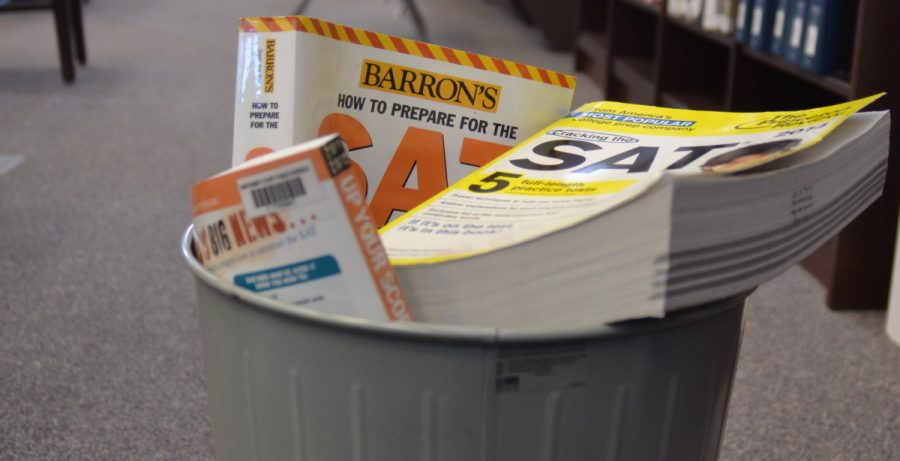College Board Scraps Old SAT
May 2, 2014

For the first time since 2005, the College Board has announced a complete overhaul of the SAT by the spring of 2016. Among other changes, the test will return to a 1600-scale, essays will not be required and points will not be deducted for wrong answers.
The changes mark the College Board’s initiative to become more applicable to today’s classroom and working world. Instead of testing concepts students will likely never use in higher education or the workforce, the College Board aims to highlight skills typically learned in high school.
Calculators will no longer be allowed on some parts of the math section. Also, in an effort to increase student knowledge about important events, the verbal section will include source texts about a variety of subjects, like science and history.
Income was another major factor in determining the changes to the test. A common criticism of the SAT is that it is a traditional, outdated “rich kids’ test” a�� that scores can essentially be bought by parents willing to send their children to the most premier test prep companies.
Simply coming from a wealthier family makes one more likely to score higher. “The SAT correlates most strongly with your parents’ income, regardless of whether you’ve taken a test prep class,” English teacher Anne Ehlers said. Ehlers teaches RHSa�� college test prep class and is a member of the school’s SAT test prep committee, headed this year by assistant principal Bradley Rohner.
To lessen the income gap, the College Board will provide fee waivers for low-income students to apply to four colleges. Also, the company will try to make test prep more accessible by partnering with the Khan Academy to provide instructional videos.
Junior Lauren Colliton took the March SAT after mild preparation on her own, but still plans to receive SAT tutoring. Colliton thinks the vocabulary change is a step in the right direction.
“After high school, most students forget all of the big fancy words that they are forced to memorize for the SAT,” Colliton said. “The vocab words for the test should be more relevant and usable in the everyday language of a high schooler.”
Ehlers agreed that the vocabulary change will be beneficial. “Vocabulary will be in the context of longer reading passages a�� which makes sense since that’s how we actually encounter vocabulary a�� rather than in random word lists,” Ehlers said.
Last year, 1.8 million students took the ACT and 1.7 million took the SAT. Critics wonder whether the changes are being made so the SAT can catch up to the new kid on the block, the ACT.
In a statement regarding College Board’s announcement, Deborah Ellinger, CEO of the Princeton Review, called the issue “nothing more than a Coke versus Pepsi battle.” Ellinger said, “In this case Pepsi (the ACT) has taken market leadership from Coke (the SAT), and Coke has responded. When viewed through that lens, these changes make a lot of business sense.”




